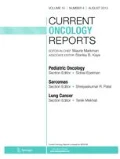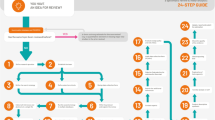Abstract
Recognition of the importance of uncertainty in the design of randomized, controlled trials (RCT) has reached the status of a principle. The "uncertainty principle," or less ambiguously, equipoise, holds that a patient should be enrolled in an RCT only if there is substantial uncertainty about which of the trial treatments would benefit the patient most. In fact, the "uncertainty principle" addresses the most important issue of a clinical trial—the choice of an adequate comparative control. Studies in which intervention and control group are believed to be non-equivalent violate the uncertainty principle. Therefore, one would expect that both editors and authors would be particularly careful to include a statement concerning prior beliefs of the investigator(s) about the uncertainty of the treatments that are reported. However, we found no evidence of such a policy in the randomized, controlled trials we examined. We also show that there is a predictable relationship between the uncertainty principle, that is, the moral principle upon which trials are based, and the ultimate outcomes of clinical trials. We postulate that about 50% of innovations are successful, leading to the conclusion that preserving the ethics of clinical research may be the best investment strategy available.
Similar content being viewed by others
References and Recommended Reading
Tanenbaum S: What physicians know. N Engl J Med 1993, 329:1268–1271.
Logan RL, Scott PJ: Uncertainty in clinical practice: implications for quality and costs of health care. Lancet 1996, 347:595–598.
Kassirer JP: Our stubborn quest for diagnostic certainty: a cause of excessive testing. N Engl J Med 1989, 320:1489–1491.
Ludmerer KM: Time to Heal. New York: Oxford Press; 1999.
Fox RC: The evolution of medical uncertainty. Milbank Q 1980, 58:1–49.
Djulbegovic B, Hadley T: Evaluating the quality of clinical guidelines: linking decisions to medical evidence. Oncology 1998, 12:310–315.
Matthews JR. Quantification and Quest for Medical Certainty. Princeton, NJ: Princeton University Press; 1995. Great historical perspective on the role of physiologic versus epidemiologic approach to the practice of medicine. Matthews shows that the debate, still alive and well today, has not been settled within the medical community but by society at large.
Jadad A: Randomized Controlled Trials. London: BMJ Books; 1998.
Morens DM: Death of a president. N Engl J Med 1999, 341:1845–1849.
Russell LB, Gold MR, Siegel JE, et al.: The role of costeffectiveness analysis in health and medicine. JAMA 1996, 276:1172–1177.
Weinstein M, Fineberg H, Elstein A, et al.: Clinical Decision Analysis. Philadelphia: WB Saunders; 1980.
Eatwell J, Milgate J, Newman P: Game Theory. New York: WW Norton; 1989.
Silverman WA, Chalmers I: Casting and drawing lots: a time-honoured way of dealing with uncertainty and for ensuring fairness. In Controlled Trials from History. Accessible at http://www.rcpe.ac.uk/controlled_trials/ casting.html. Accessed June 20, 2001. Wonderful discussion on the methods for resolution of uncertainty showing how casting and drawing of lots is the best method.
Bradford Hill A: Clinical trials and the acceptance of uncertainty [letter]. BMJ 1987, 294:1419. This short but often forgotten letter reminds us that randomization is just a technique for resolution of the uncertainty—nothing more, nothing less.
Kleijnen J, Gotzsche P, Kunz RA, et al.: So what’s so special about randomisation? In Non-random Reflections on Health Services Research. Edited by Mayndard A, Chalmers I. London: BMJ; 1997:93–106.
Djulbegovic B, Clarke M. Scientific and ethical issues in equivalence trials. JAMA 2001, 285:1206–1208. This paper discusses the relationship between acknowledgement of uncertainty, null hypothesis, trial design, and informed consent.
Brophy JM, Joseph L: Placing trials in context using Bayesian analysis. JAMA 1995, 273:871–875.
World Medical Association: Declaration of Helsinki: ethical principles for medical research involving human subjects. JAMA 2000, 284:3043–3045. Accessible online at http://www.wma.net/e/policy/17-c_e.html
Bradford Hill A: Medical ethics and controlled trials. BMJ 1963, 2:1043–1049.
Peto R, Baigent C: Trials: the next 50 years. BMJ 1998, 317:1170–1171. This paper gives understanding uncertainty about relative treatment values the status of principle.
Rothman KJ, Michels KB, Baum M: Declaration of Helsinki should be strengthened: for and against. BMJ 2000, 321:442–445.
Rothman KJ, Michels KB: The continuing unethical use of placebo controls. N Engl J Med 1994, 331:394–398.
Mathe G, Brienza S: From methodology to ethics and from ethics to methodology. Biomed Pharmacother 1988, 42:143–153.
Lilford RJ, Djulbegovic B: Equipoise is essential principle of human experimentation. BMJ 2001, 322:299–300. Highlights the ways in which acknowledgment of uncertainty has resolved ethical tension between the interests of society and those of individuals.
Edwards SJL, Lilford RJ, Braunholtz DA, et al.: Ethical issues in the design and conduct of randomized controlled trials. Health Technol Assess 1998, 2:1–130. The only published systematic review on the topic of equipoise/ uncertainty in clinical trials.
Sacks H, Chalmers TC, Smith H: Randomized versus historical control for clinical trials. Am J Med 1982, 72:233–240.
Chalmers I, Altman DG: Systematic Reviews. London: BMJ; 1995.
Clarke M, Chalmers I. Discussion sections in reports of controlled trials published in five general medical journals: islands in search of continents? JAMA 1998; 280:280–282.
Djulbegovic B, Lacevic M, Cantor A, et al.: The uncertainty principle and industry-sponsored research. Lancet 2000, 356:635–638. The only empirical study published so far that examines a relationship between uncertainty in trials and outcomes of trials. It also demonstrates that studies may meet all standard quality criteria and yet be biased if they violate the uncertainty principle (ie, choice of inadequate comparative control).
Begg CB, Cho MD, Eastwood S, et al.: Improving the quality of reporting of randomized controlled trials: the CONSORT statement. JAMA 1996, 276:637–639.
Djulbegovic B, Bennett C, Lyman G: Violation of the uncertainty principle in conduct of randomized controlled trials (RCTs) of erythropoietin (EPO) [abstract]. Blood 1999, 94:399a.
Djulbegovic B, Lacevic M, Lyman GH: Appraisal of randomized controlled trials in myeloma published from 1966–1998 [abstract]. Proc ASCO 2000, 19:444a.
Collins R, Peto R, Gray R, Parish S: Large scale randomized evidence: trials and overviews. In Non-random Reflections on Health Services Research. Edited by Mayndard A, Chalmers I. London: BMJ; 1997:197–230.
Lilford RJ, Jackson J: Equipoise and the ethics of randomization. J R Soc Med 1995, 88:552–559. Introduces the concept of individual equipoise and shows why it should be more important than collective equipoise.
Freedman B. Equipoise and the ethics of clinical research. N Engl J Med 1987, 317:141–145. A classic paper that introduced the term "equipoise" to reflect uncertainties that may exist among experts about the relative value of competing treatment alternatives.
Chard JA, Lilford RJ: The use of equipoise in clinical trials. Soc Sci Med 1998, 47:891–898.
Pauker S, Kassirer J: Therapeutic decision making: a cost benefit analysis. N Engl J Med 1975, 293:229–234.
Pauker SG, Kassirer J: The threshold approach to clinical decision making. N Engl J Med 1980, 302:1109–1117.
Djulbegovic B, Hozo I, Abdomerovic I, Hozo S: Diagnostic entropy as a function of therapeutic benefit/risk ratio. Med Hyoptheses 1995, 45:503–509.
Shannon CE, Waever W: The Mathematical Theory of Communication. Urbana, IL: The University of Illinois Press; 1962.
Lilford RJ, Djulbegovic B: Equipoise and‘the uncertainty principle’ are not two mutually exclusive concepts [letter]. BMJ 2001, 322:795. Accessible online at http://www.bmj.com/ cgi/content/full/321/7263/756 Clarifies that the terms "equipoise" and the "uncertainty principle" just refer to different gradations of uncertainty.
Karlawish JHT, Lantos J: Community equipoise and the architecture of clinical research. Cambridge Q Healthcare Ethics 1997, 6:385–396.
Johnson N, Lilford JR, Brazier W: At what level of collective equipoise does a clinical trial become ethical? J Med Ethics 1991, 17:30–34.
Mosteller F: Innovation and evaluation. Science 1981, 211:881–886.
Bunker JP, Frazier HS, Mosteller F: Improving health: measuring effects of medical care. Milbank Q 1994, 72:225–258.
Djulbegovic B, Bennett CL, Adams JR, Lyman GH: Industry-sponsored research. Lancet 2000, 356:2193–2194.
Zivin JA: Understanding clinical trials. Sci Am 2000, 282:69–75.
Chalmers I: What is the prior probability of a proposed new treatment being superior to established treatments [letter]? BMJ 1997, 314:74–75. In this letter the author asked a question that remains unanswered.
Gilbert JP, McPeek B, Mosteller F: Progress in surgery and anesthesia: benefits and risks of innovative therapy. In Costs, Risks and Benefits of Surgery. Edited by Bubker JP, Barnes BA, Mosteller F. New York: Oxford University Press; 1977:124–169.
Gilbert JP, McPeek B, Mosteller F: Statistics and ethics in surgery and anesthesia. Science 1977, 198:684–689.
Colditz GA, Miller JN, Mosteller F: How study design affects outcomes in comparisons of therapy. I. Medical. Stat Med 1989, 8:441–454.
Machin D, Stenning S, Parmar M, et al.: Thirty years of Medical Research Council randomized trials in solid tumours. Clin Oncology 1997, 9:100–114.
Frazier HS, Mosteller F: Medicine Worth Paying for: Assessing Medical Innovations. Cambridge: Harvard University Press; 1995.
Martin JB, Kasper DL: In whose best interest? Breaching the academic-industrial wall. N Engl J Med 2000, 343:1646–1649.
Sackett DL, Hoey J: Why randomized controlled trials fail but needn’t: a new series is launched. CMAJ 2000, 162:1301–1302.
Silverman WA: Gnosis and random allotment. Controlled Clin Trials 1981, 2:161–164.
Author information
Authors and Affiliations
Rights and permissions
About this article
Cite this article
Djulbegovic, B. Acknowledgment of uncertainty: A fundamental means to ensure scientific and ethical validity in clinical research. Curr Oncol Rep 3, 389–395 (2001). https://doi.org/10.1007/s11912-001-0024-5
Issue Date:
DOI: https://doi.org/10.1007/s11912-001-0024-5




